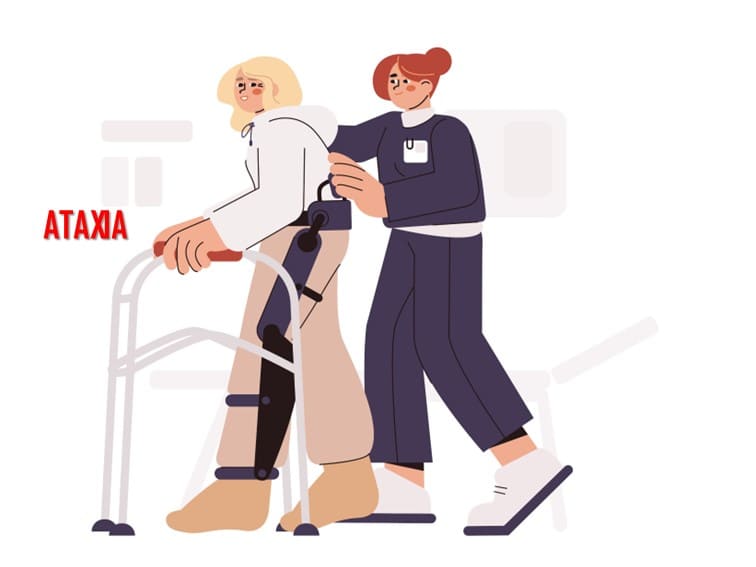Ataxia Causes, symptoms – Dr. Vikram Sharma Explains
Ataxia means a lack of coordination and muscle control. Those who suffer from this condition lack muscle control in their arms and legs. Ataxia can also affect eye movements, speech, body movements, legs, hands, and fingers. Lack of coordination and balance may lead to walking difficulty. Ataxia affects people of all ages.
What Causes this condition?
Defects in genes that are responsible for nerve cell degeneration can lead to muscle control and coordination problems. Abnormal proteins cause nerve cell degeneration leading to ataxia. Ataxia is a progressive and degenerative nerve cell disorder. As the condition progresses, muscles become less responsive to the signals from the brain and do not work accordingly. When this happens, the balance and coordination worsen day by day.
The other causes of ataxia include vitamin B12 deficiency, multiple sclerosis (MS), brain stroke, and an immunological problem. Ataxia can also develop due to an injury, accident, or illness.
What are the symptoms of Ataxia?
The signs and symptoms associated with ataxia include the following:
- Lack of muscle coordination and balance (this symptom appears first)
- Poor coordination of legs, hands, and arms
- Slurred speech
- Stumbling
- Falling
- Trouble eating and swallowing
- Walking difficulty (wide-based gait)
- Slow eye movements
- Vision and hearing problems
- Difficulty in performing routine tasks like eating, writing, etc.
How is ataxia diagnosed?
An experienced neurologist examines the patient thoroughly by taking into account the patient’s complete medical history, symptoms, and family history. After a thorough physical and complete neurological examination, the doctor may order a few blood, urine, and imaging tests including MRI and genetic testing. The diagnosis is made based on the results of the imaging tests.
What is the treatment for Ataxia?
For hereditary ataxia, there is no cure. However, if the cause of ataxia is known or if ataxia is due to toxicity or exposure to a drug or low vitamin levels, chemical, or a stroke, then treating or addressing the specific underlying condition can treat ataxia.
To manage a lack of muscle coordination and imbalance doctors recommend physical therapy, occupational therapy, speech therapy, and the use of a walker, crutches, and cane. In addition, neurologists also prescribe medicines to control symptoms such as muscle stiffness and tremors, sleep problems, anxiety, and depression.
Bottom Line
The signs and symptoms associated with ataxia may look similar to the symptoms of other health conditions. Meet a specialist doctor – an experienced neurologist for an accurate diagnosis and prompt treatment of the condition.
The outlook of the condition may depend on the type, cause, and severity. In most cases, acquired ataxia shows promising outcomes.


